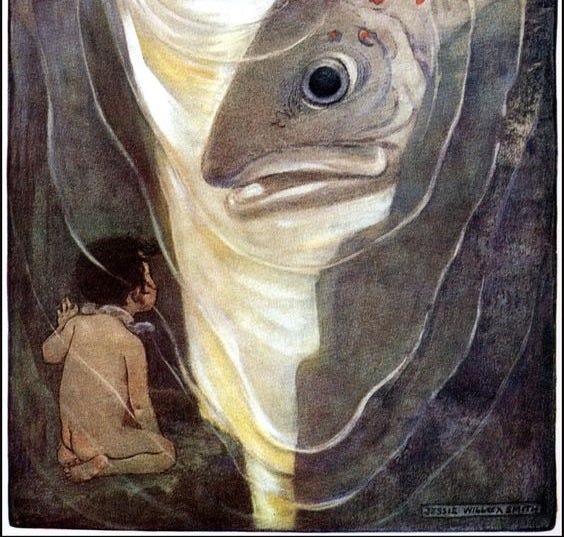At a time when we are all striving toward some optimism because the future looks so dark, I almost hate to offer this poem I wrote after the 2016 election, knowing Trump was a Climate denier, and worried about the damage he would do on his watch.
Now, after he’s returned and is appointing Chris Wright, a fossil fuel executive and climate change denier, to serve as energy secretary, the future for our planet and humanity’s survival looks darker still.
As I wrestled whether to print this poem here, I listened to a podcast with Jane Hirshfield reading her poem “Let Them Not Say,” which warns about our failure to address Climate Change. We need these warnings.
The jury is out on whether the world we know today will survive the catastrophes that are already unfolding as the planet warms. We’ve known for fifty-four years what is coming if we don’t do something, and yet we still drag our feet.
If what we fear happens, the Earth will survive. It will heal in time. But we, humanity, and the civilizations we’ve built, will not. The jungles and desert sands will swallow us as they swallowed civilizations before us. And perhaps we deserve that.
But much will be lost with our passing.
So I offer below my poem of lament, and Hirshfield’s poem of warning below that.
Once Upon a Time in America
In an eon hence, after the Trojan horse of Trumpism eviscerated a City of Light, and oceans rose and civilizations fell,
Will we be the stuff of legends, our tropes and memes edging pages of ancient texts on crumbling shelves?
Will waves gently lap against the skirts of Liberty and docile doves nestle in her hair?
Will salmon swim upstream through city streets, and coral reefs grow in our gardens,
While the long roots of forests thrum with our stories etched in rings around their trunks?
Will the mocking bird remember our voices? Or the songbirds our songs?
Will crickets by moonlight rub their feet together filling the night with memories of our violins,
While tiny children perched in trees suckle strange fruit, and the bent backs of their elders forage below?
Will the skies with bows of beauty still bend round us? Will the stars cast spears of light upon our heads?
Will the Bald Eagle with its soaring eye see us? Will we see it? And remember how
The long, slow, widening arc of its wings drew round us, once up a time, so long ago.
Deborah J. Brasket
Illustration by Jessie Wilcox Smith from the fairy tale Water Babies by Charles Kingsley, 1862
Let Them Not Say
Let them not say: we did not see it.
We saw.
Let them not say: we did not hear it.
We heard.
Let them not say: they did not taste it.
We ate, we trembled.
Let them not say: it was not spoken, not written.
We spoke,
we witnessed with voices and hands.
Let them not say: they did nothing.
We did not-enough.
Let them say, as they must say something:
A kerosene beauty.
It burned.
Let them say we warmed ourselves by it,
read by its light, praised,
and it burned.
Jane Hirshfield, 2014





Your beautiful lament is heartbreaking but necessary, Deborah. Thank you for noting that Mother Earth will indeed survive, as she has for eons. But man’s destructive reign will not. Earth has seen civilizations come and go in the past. But isn’t it a pity that too many of us failed to learn the lessons of the needlessly destroyed Buffalo.
Thanks also for including Jane Hirschfield’s poignant poem. She nailed it too. We need testaments like this—yours and Jane’s— as Rome needed Pliny and Cicero. We your poems for ourselves and also for archeologists of some future age who will ask inevitably: How in the world did they allow such a thing to happen. I’m sure they will find the answer soon enough in a single word. Greed.
Deborah, I want to say something, but my heart is pounding too fast and it hurts. I was at Berkeley in 1970 and we discussed how the seas would rise and how to get people to move from the coasts; we talked about protecting Yosemite by not permitting cars in the valley; we knew we had a limited oil supply and had to switch to solar and wind; so many things we thought we could change for the good of the earth 54 years ago.
Be